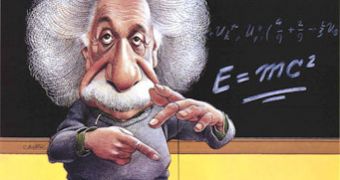Surely, the field of physics is far from being the first thing that presidents concern themselves with when it comes to the skills they require for the job. However, having a more solid knowledge of the way things happen around the world and in nature in general, as well as in space, might make the difference at some point, perhaps more often than not. High technology, space race, nuclear and terrorist threats, global warming or pollution are just a few examples of what a good president should always be able to comprehend, and address if case be.
In this respect, UC Berkeley physicist Richard Muller's book called “Physics for Future Presidents” comes as a helping hand. In it, he objectively explains why some things, such as dirty bombs or cutting back CO2 emission in developed countries in order to set an example, are overrated, while others are neglected, like natural gas bombs or the pollution from Asian newly developing countries. “I do not have a sense from the campaigns that the candidates really know this stuff. In the past, it’s been the secret knowledge of the scientists who say, ‘Pick me as your science adviser, and I’ll tell you what to do’,” writes Muller, who wants to change that.
He already made sure that the persons who are close to the current candidates for presidency have his book, and will even make sure to pass it on to the winner. Muller is convinced that, if the need arises, the president will be forced to learn some basics physics himself, in order to make competent decisions, and he wants to provide an easily accessible form for that happening, via his easily comprehensible book.
In his own opinion, we should first send as many unmanned space missions as possible, because they are a lot cheaper and more efficient, while also helping robotics science evolve and not putting human lives at risk before more knowledge is gathered. As for the emission cuts, he believes sending money to China or India in one way or another, for them to reduce their emissions would prove much more effective on a large scale than investing in reducing CO2 emission in OECD wealthy countries.
As regards the global warming problem, Muller thinks that clean coal is the most pressing issue that should be addressed, since it is abundant and cheap in Asia, and it is widely used for power purposes. Investing more in capturing and redirecting the carbon dioxide underground would be a major step in reducing greenhouse effects. The author also stresses the fact that terrorists are far better prepared in elementary physics than a president.
On the other hand, physics is not the only field a president should be interested in. Still, while not a wrong assumption, following the course of Muller's idea could mean that perhaps a president should also be sufficiently skilled in the medical field, or in agriculture and tourism.

 14 DAY TRIAL //
14 DAY TRIAL //